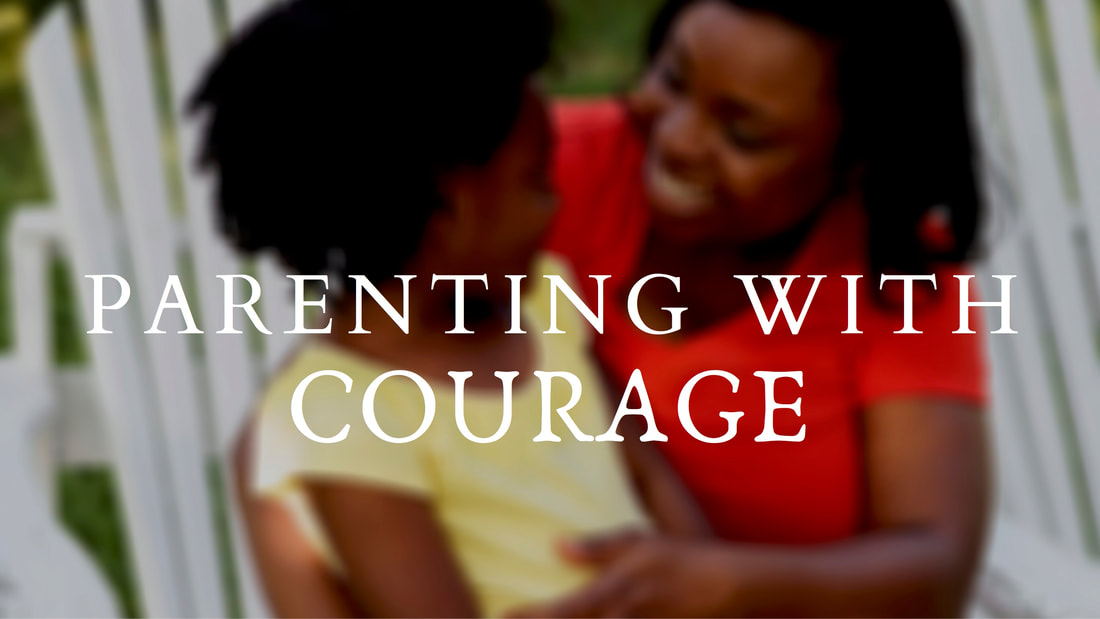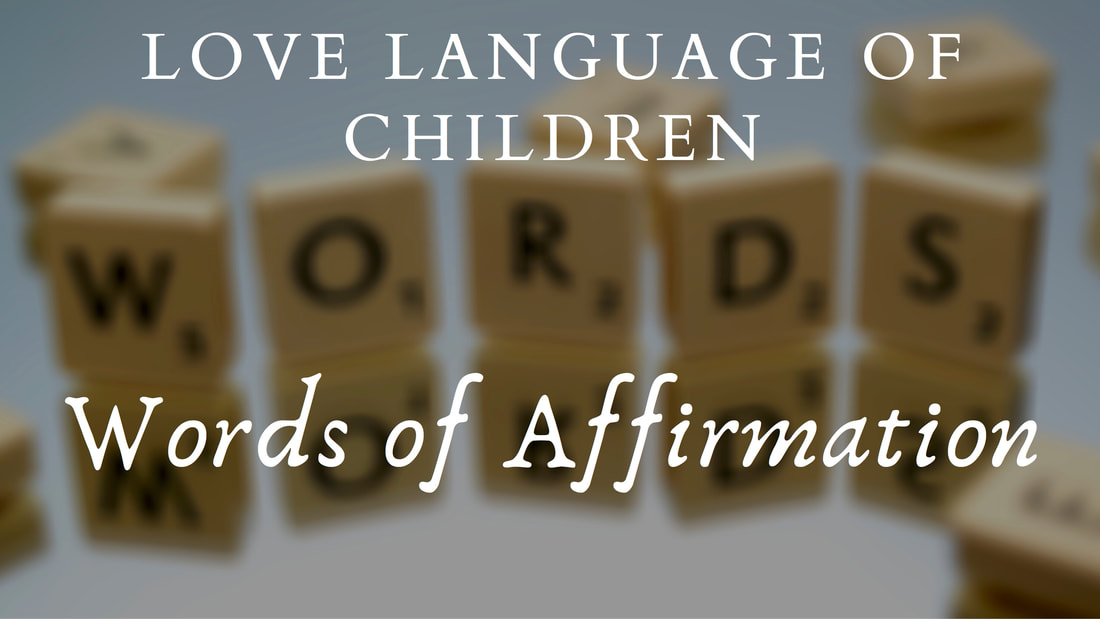The righteous man walks in his integrity; His children are blessed after him. ~ Proverbs 20:7 As a parent, you may find yourself in situations asking, “Do I trust my child? Do I trust what she is doing or saying?” What we often forget to ask is, “Does my child trust me?” Trust is a two-way street and believe it or not, it must be earned.
Trust is foundational to human relationships and it begins when a baby cries and his needs are met. His cry is his only way of letting you know that he has an unmet need. He cries to let you know when he needs affection…to be hugged, cuddled and comforted. He may be hungry and need you to feed him or wet and need to be changed. Whatever he needs and as you meet his needs, he learns that he can trust you. Responding to his cries, helps him learn to trust not only you, but the world around him. By responding to his needs, you are building a foundation of trust for your child. Trust building continues as your child gets older… by keeping promises, being honest, respecting him, listening to him, and being consistent with your parenting. Establishing trust and confidence is how you can build a meaningful relationship with your child and cope when parenting gets tough. In other words, “A healthy relationship must ultimately be based on trust. To build trust, you always keep your word. You remain consistent and dependable in everything you say and do. You become the kind of team player who is utterly reliable in every situation. You never do or say anything that can shake this foundation of trust upon which a healthy relationship is built.” ~ Brian Tracy Brene Brown’s acronym, BRAVING, emphasizes the qualities that contribute to building and sustaining trust. B----Boundaries: Can your child trust you to be clear about the rules and regulations that you have established? Can she trust you to give her room and to say “no” when it is called for? Can she respect you to allow her to say a respectful “no” and will you understand? R----Reliability: Will you do what you say you will do? Will you keep your promises? Will your actions match your words? Can she trust you to be consistent? A----Accountability: Can she trust that when you make a mistake you will own it and apologize and make amends? Will you allow her to hold herself accountable for the mistakes she makes and give her the opportunity to apologize? V----Vault: Will you keep her confidence? Will you be sensitive to the things that embarrass her and not repeat them because you think it is something cute to tell? I-----Integrity: Can she trust you to model what integrity looks like? Will you let her see you choosing the harder right over the easier wrong? Will you practice your values and not just verbalize them? N----Non-judgment: Will you allow her to cry without judging? Will you allow her to struggle and make decisions without judging? Will you allow her to see you reaching out for help when needed and helping others without judging? Will you show her respect? Will you listen and show genuine interest in what she is saying? G-----Generosity: Will you assume that her intentions are good and when you are not sure, you will talk to her about it? Will you make the best assumptions about her instead of the worst? Trust between you and your child is vital and must be built and sustained. But remember you must also do what Proverbs 22:6 tells parents to do… “Train up a child in the way he should go; even when he is old, he will not depart from it.” This includes teaching her about trusting God. Teach her that God is sovereign and that He works on behalf of His children. Teach her Proverbs 3:5-6, “Trust in the Lord with all your heart, and lean not on your own understanding; In all your ways acknowledge Him, and He shall direct your paths.” Teach her that when all else fails, it is better to take refuge in the Lord than to trust in man. Trust is foundational to human relationships and it is vital to establishing confidence and assurance so that your child knows that she can rely on you. The key to building trust with your child is to start when she is young and to emphasize the qualities that contribute to not only building trust but also sustaining it. And, as she learns to trust you, she will find it easy and necessary to trust the One who loves her more than even you do…our Lord and Savior, Jesus Christ.
0 Comments
“You shall love the Lord your God with all your heart, with all your soul, and with all your strength. And these words which I command you today shall be in your heart. You shall teach them diligently to your children, and shall talk of them when you sit in your house, when you walk by the way, when you lie down, and when you rise up.” Raising children is daunting at best. Do you remember the feeling you had when the delivery room nurse handed you your baby? Remember that sense of awe and overwhelming love? And as they prepared you for your discharge home, you realized that you have the complete responsibility for someone other than yourself…what she eats and drinks, when she eats and drinks, what she wears, her education, on and on…it is now completely up to you, her very survival depends on you, her parents.
If I ask you to prioritize your responsibilities regarding your child, you would probably find it difficult to rank order them. Oh, food and shelter would probably rank high on the list. But, after that, what would your list look like? And what about your role as teacher? What would you say is the most important thing that you should teach your child? I agree with Paul David Tripp, “The most important thing that a child could ever learn is the existence, character, and plan of God.” According to Doctor Charles Stanley, “Very early in your child’s life…introduce them to the fact that God has a plan for them.” In Deuteronomy 6:5-7 we read, “You shall love the Lord your God with all your heart, with all your soul, and with all your strength. And these words which I command you today shall be in your heart. You shall teach them diligently to your children, and shall talk of them when you sit in your house, when you walk by the way, when you lie down, and when you rise up.” I prayed that our children would become productive, independent citizens. I wanted them to love each other, help others, have successful careers, think for themselves and above all, love God with all their hearts and souls. In order for this to happen, Dennis and I had to take action, we had to lead our children to know and love God, we had to be diligent in leading our children to Jesus. We read Bible stories to them. We didn’t just send them to church, we took them. We used every day occurrences to introduce them to stories about Jesus. And, we prayed with them. Yes, raising children is a daunting task. However, we must remember that, “God doesn’t call the equipped, He equips the called.” If God made you a parent, through adoption or birth, He will give you what you need to raise your child. You can be the parent God wants you to be. And, you can raise your child to love God and seek His plan for her life. You just need to seek Him and follow Him. He will not leave you nor forsake you. Remember, God always keeps His promises. “Sticks and stones may break my bones but words never harm me.” Remember hearing that as a kid? Or perhaps you have even said it. Well, words do hurt. In fact, although they don’t break bones, they can break a child’s spirit. And if the child’s love language is Words of Affirmation, it can be devastating. Ephesians 4:29 states, “Let no corrupting talk come out of your mouths, but only such as is good for building up, as fits the occasion, that it may give grace to those who hear.” In other words, think before you speak to avoid hurting your child. What is your tone? When you speak to your child, it should be loving and comforting, not mean and hateful. Believe it or not, your child will remember the tone more than what you said.
A soft answer turns away wrath, but a harsh word stirs up anger. ~Proverbs 15:1 1. Don’t compare your child to anyone. It can be very painful for a child to hear you say, “Why can’t you be like Jody?” Or “Why do you have to be like you are.” Or, “Your brother would have done it right.” Comparing your child with others can break his spirit and can hurt his self-esteem. God made each of us unique. He doesn’t compare us, what gives us the right to compare anyone? You made all the delicate, inner parts of my body and knit me together in my mother’s womb. Thank you for making me so wonderfully complex. ~Psalm 139:13-14 2. Don’t Accuse your child. Even if you know your child lied, don’t yell and call him a liar. It is best to state the facts and discuss the consequences. Use it as a teaching moment. The godly offer good counsel; they teach right from wrong. ~ Psalm 37:30 3. Don’t say things that you can’t carry through. “I am going to send you to live with someone else.” You know you have no intentions of doing it and it just serves to confuse your child. He’ll think you won’t carry through with other things you say. Set a guard, O Lord, over my mouth; keep watch over the door of my lips. ~ Psalm 141:3 4. Don’t ask your child a question that you know the answer to but don’t want him to answer. Asking your child a question and then telling him to be quiet just serves to aggravate him and you. Let the words of my mouth and the meditation of my heart be acceptable in your sight, O Lord, my rock and my redeemer. ~Psalm 19:14 5. Don’t be demeaning. Calling your child stupid, idiot, lazy or tell him that he can’t do anything right. It isn’t true, it’s hurtful and if you say it repeatedly, your child will start to believe it. Fathers, do not aggravate your children, or they will become discouraged. Colossians 3:21 6. Don’t minimize your child’s feelings. Acknowledge his feelings, they are real to him. Children feel real hurt, real disappointment from their friends. Encourage them to talk but do not disregard their feelings. Wise words satisfy like a good me; the right words bring satisfaction. ~ Proverbs 18:20 7. Don’t give up on your child. It is normal to get upset, frustrated and aggravated and want to through your hands up when you’re stressed and the kids are exhibiting bad behavior. Whatever you do, don’t say things like, “I’m done”, “I’m through with you,’ or “I quit.” This hurts your child and he can feel like you no longer love him. No power in the sky above or in the earth below—indeed, nothing in all creation will ever be able to separate us from the love of God that is revealed in Christ Jesus our Lord. ~ Romans 8:39 8. Don’t sink to your child’s level. If your child tells you that he hates you, don’t respond in kind or say something like, “I wish I had never had kids.” Those words are very harmful and could have lasting negative effects. Just let him know that you will always love him and nothing will ever change that. When words are many, transgression is not lacking, but whoever restrains his lips is prudent. Proverbs 10:19 9. Don’t exclude your child. If you are talking to an adult and your child comes in, introduce your your child as you would a friend, don’t ignore him. This teaches child politeness and makes him feel wanted. And you yourself must be an example to them by doing good works of every kind. Let everything you do reflect the integrity and seriousness of your teaching. Titus 2:7 |



